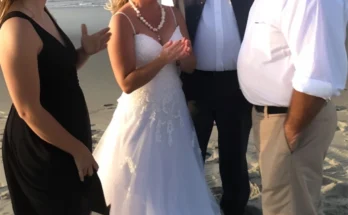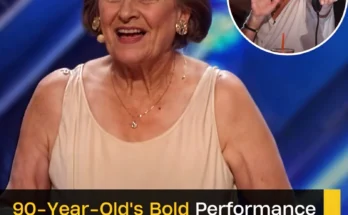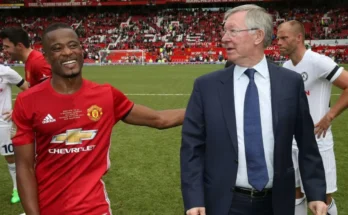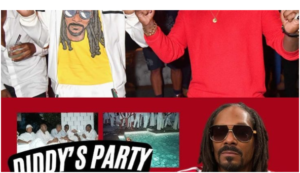
As new revelations continue to shock the entertainment industry, it seems the walls are closing in on Diddy. With more celebrities coming forward with chilling details, the once-untouchable mogul is facing a reckoning. Among the latest is Snoop Dogg, shedding jaw-dropping secrets about his time under Diddy’s roof.
Known as a fellow veteran in music and one of Diddy’s longtime rivals, Snoop is believed to be more than happy to see Diddy put away for good. Some of the allegations against Diddy have even led to his closest friends abandoning him. Having been in the industry for as long as Diddy, Snoop Dogg allegedly knows many hidden secrets about the Bad Boy founder.
Before we delve into the revelations, we need to explore the root of Snoop Dogg’s deep-seated hatred towards Diddy. Snoop Dogg’s animosity towards Diddy can be traced back to the infamous East Coast-West Coast hip-hop rivalry of the 1990s.
This conflict wasn’t just about music but was rooted in intense competition and hostility between artists from Diddy’s Bad Boy Records on the East Coast and Suge Knight’s Death Row Records on the West Coast, where Snoop Dogg was a key artist.

Death Row Records, home to legends like Dr. Dre, Snoop Dogg, and Tupac, dominated West Coast hip-hop. On the East Coast, Diddy’s Bad Boy Records, with artists like The Notorious B.I.G., Lil Kim, and the entire Junior Mafia, became their main rival.
What started as a battle for chart supremacy quickly turned personal with each side feeling that the other disrespected their respective cultures. For Snoop Dogg, Diddy and Bad Boy represented a style of hip-hop that clashed with the West Coast’s street-centric style.
During this period, Wendy Williams, a prominent radio host on Hot 97, fueled the tension by spreading rumors about Diddy’s personal life. She hinted at Diddy’s alleged homosexuality, coining the term “homo thugs” to describe rappers who she claimed were pretending to be straight and gangsta to avoid backlash in an industry where being gay was highly stigmatized.
Wendy’s assertions fed into the broader narrative of the East Coast-West Coast feud, adding another layer of controversy to an already volatile situation.
One pivotal moment in the East Coast-West Coast rivalry occurred at the 1995 Source Awards when Suge Knight took a direct shot at Diddy during his acceptance speech.
Knight’s infamous line, “Inviting artists to join Death Row if they didn’t want their producers all up in the videos,” was a pointed jab at Diddy, who was known for his frequent appearances in his artists’ music videos and hit songs. West Coast artists, including Suge Knight and Snoop Dogg, viewed this as intrusive and self-serving, creating further division between the two camps.
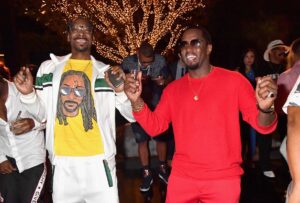
The tension between Bad Boy and Death Row continued to build, culminating in the tragic m:u:rd3rs of Tupac in 1996 and The Notorious B.I.G. in 1997. Tupac, who had become a close friend and collaborator of Snoop, was a central figure in the feud. Following Tupac’s m:u:rd3r, Snoop’s resentment toward Diddy intensified.
He believed that the conflict between their labels played a role in the violence that claimed Tupac’s life. In later years, Snoop Dogg made claims suggesting that Diddy might have been involved in Tupac’s m:u:rd3r, citing the fierce competition between their camps. Though these accusations remain controversial and lack hard evidence, they reveal the lasting bitterness Snoop held toward Diddy.
While there have been moments of apparent reconciliation between the two, Snoop has continued to voice disdain for Diddy’s flashy commercial persona. For Snoop, who values street credibility and his connection to West Coast culture, Diddy’s approach to hip-hop represented the commercialization of the art form, a departure from its authentic roots.
In the wake of Diddy’s indictment, preceded by a raid on Diddy’s residence, the air is thick with speculation and rumors. Whispers of secret tunnels, hidden chambers, and encrypted files have captivated the public’s imagination, fueling theories that damning evidence might soon come to light.
As Diddy’s world seems to unravel, many are now looking to Snoop Dogg, rumored to be next in line to reveal shocking secrets about his time spent around Diddy. Snoop, who has long maintained a public facade of camaraderie with Diddy, is reportedly preparing to speak out.

Insiders close to Snoop suggest he’s harbored a deep-seated disdain for Diddy, believing that those who engage in harmful actions should face consequences. Despite the outward appearances of friendship, it seems that Snoop’s true feelings about Diddy are far more complex.
What’s especially fascinating in this unfolding saga is Snoop’s personal evolution. Once deeply immersed in the gangster lifestyle, Snoop faced serious legal trouble, including being charged with accessory to m:u:rd3r, a case in which he was ultimately acquitted.
However, he’s undergone a significant transformation in both his personal life and his approach to the world around him. Reflecting on his journey, Snoop has spoken openly about his shift from responding to hate with more hate to instead choosing love.
In interviews, Snoop has shared how this newfound mindset extends beyond his personal life and into his artistry. He acknowledges that his views on women and relationships have evolved, moving away from the objectification common in the early days of his career to a place of respect and appreciation.
This transformation reflects a broader change in Snoop’s worldview, suggesting that his potential revelations about Diddy may come from a place of accountability and a desire for truth.
Snoop Dogg’s personal evolution has shaped his advocacy for gun violence prevention, notably through his collaboration with his daughter Cori B on the song “No Guns Allowed.”
Drawing from his past experiences, Snoop uses his platform to address the pervasive issue of gun violence, encouraging others to choose a more peaceful path. This marks a stark contrast to the increasingly disturbing allegations surrounding Diddy, whose personal life is unraveling with a disturbing litany of accusations.
As more stories emerge, the image of Diddy as a figure of power and influence shielded from accountability becomes clearer. The accusations against him portray a man indulging in self-interest, substance abuse, and manipulation, leaving behind a trail of trauma that spans decades. From the founding of Bad Boy Records in 1993 to the rise of his media empire, Revolt in 2013, Diddy’s ascent to fame and fortune seems inextricably linked to a darker, more sinister pattern of behavior.
Perhaps the most shocking of these accusations surfaced in November 2023 when Cassandra “Cassie” Ventura, Diddy’s former girlfriend, filed a lawsuit against him. In it, she details years of abuse, including coercive control, forced drug use, and physical violence.
Cassie’s lawsuit paints a horrifying picture of a relationship rooted in fear and manipulation, where Diddy allegedly beat her and hid her in hotel rooms for days until her bruises and injuries healed.
Adding to the gravity of these claims, producer Rodney “Lil Rod” Jones came forward in February 2024 with his own lawsuit, accusing Diddy of a year-long campaign of assault and harassment. Jones’s lawsuit named other prominent figures in the entertainment industry, including Diddy’s son and executives from Universal Music Group, suggesting a wider web of complicity and silence.
The collective scope and scale of these allegations portray Diddy as a central figure in a deeply troubling environment, leading some to label him the “Epstein of the rap industry.” Many former associates and artists who have worked with Diddy have expressed discomfort about being around him, particularly due to his erratic behavior when intoxicated and his controlling nature.
One striking example of this was during an interview on Drink Champs, where Diddy made a suggestive comment to another man, referring to him as “Daddy” in a sexual manner. Rapper Fabolous, visibly uncomfortable with Diddy’s behavior, tried to avoid engaging directly with him during the awkward conversation.
This is not an isolated incident. Jean Deal, Diddy’s former bodyguard, revealed that Diddy once made a shocking statement, saying, “If I can make a man suck my privates, I can make people do anything for money.” This statement highlighted Diddy’s addiction to exercising power and control over those around him.
Snoop Dogg has also dropped bombshells about Diddy’s infamous parties, where rumors of bizarre and inappropriate behavior have circulated for years. These extravagant events, costing millions of dollars and attended by over a thousand guests, often come with strict dress codes and endless supplies of alcohol and drugs.
But it’s not just the excess that has people uneasy; it’s the unsettling nature of the events. Many in the industry claim that Diddy uses these parties to act out his wildest sexual fantasies with no regard for secrecy. The thought of being forced to partake in such activities, particularly given Diddy’s rumored preference for experimenting with men, has reportedly left many rappers too scared to attend.
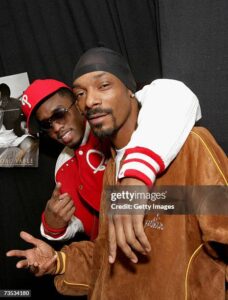
While Diddy maintains a public persona as a womanizer, his private life seems to tell a different story. Those close to him or who have been privy to his private gatherings suggest that his interests may not align with his public image, creating an atmosphere of discomfort and fear among those who have been invited to his parties.
Diddy’s history with romantic relationships, particularly with men, is fraught with rumors and speculation. He has made advances on several rappers who have been decidedly uninterested, showcasing

